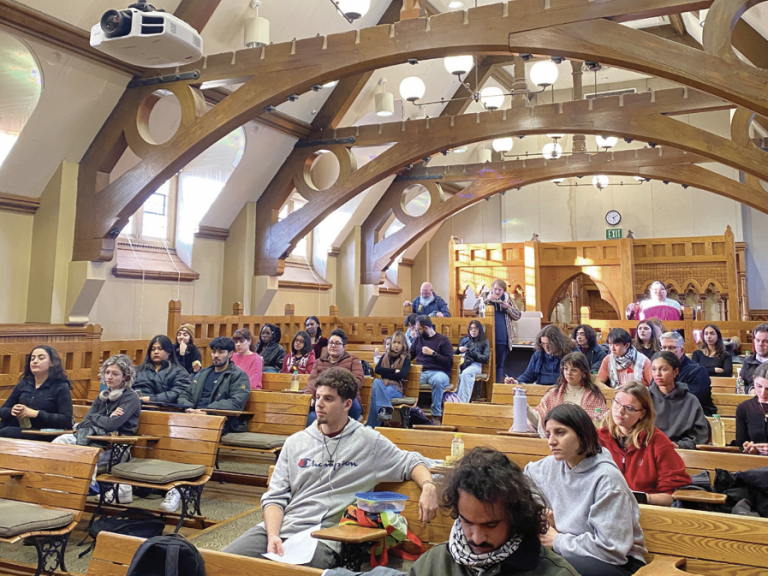Allyson Foley ’26
Contributing Writer
Raising the attention of Connecticut higher educational institutions, the Connecticut General Assembly is considering a bill for the 2024 Legislative Session that would end legacy admissions across the state. Among the numerous institutions to submit testimony in opposition for the bill for the hearing held Feb. 29 was President of Trinity College Joanne Berger-Sweeney and Dean of Admissions and Financial Aid Matthew Hyde. “Each applicant is so much more than a collection of grades and testing, and while a ‘familial relationship’ to the institution may be considered as part of an applicant’s story, it has no shaping force on the admissions decision,” they wrote. They emphasized that at Trinity, each individual application is reviewed with thorough consideration and that “legacy status amounts to a single question on the College’s application.” While Berger-Sweeney and Hyde did acknowledge that legacy applicants at Trinity “may have benefitted from a variety of opportunities and experiences that make them strong applicants,” they believe that removing legacy admissions “does not address legitimate concerns the committee has about access, affordability and diversity, issues we care deeply about and have worked to address with significant institutional investments in financial aid and student support services.” The Office of Admissions did not reply to the Tripod’s request for comment.
Legacy admissions has been a controversial topic for a number of years, with schools like John Hopkins opting to end their policy of offering an advantage to legacy students as early as 2014, and it has only become more prevalent since the Supreme Court of the United States banned affirmative action within college admissions in June of 2023. Two of Trinity’s NESCAC peer schools, including Amherst and Wesleyan, no longer consider legacy status when making admission decisions. Colorado became the first state to issue a ban, according to the New Yorker, and Virginia’s governor signed a bill into law on March 8 that banned legacy admissions in the state’s public universities.
In February of 2022, House Bill No. 5034 “An Act Prohibiting An Institution of Higher Education From Considering Legacy Preferences In The Admissions Process,” was introduced in the Connecticut State House of Representatives by the Higher Education and Employment Advancement Committee. While many education reformers support the bill, many educational institutions were opposed, including Connecticut College and Yale University, who both expressed concerns about how the policy may encroach upon private institutions if passed. Ultimately, the bill failed to make it through the House. Two years later, Senate Bill No. 203 “An Act Concerning the Consideration of Familial Relationship During The Admissions Process By An Institution of Higher Education” was introduced in the State Senate by the same committee in February for the 2024 Legislative Session.
The Connecticut Senate bill regarding legacy admissions was guided in large part by the Supreme Court’s (SCOTUS) decision to end affirmative action in college admissions in summer 2023. As reported by the Tripod in September 2023, this decision directly impacted Trinity’s admissions process, requiring a shift in certain policies. Referring to this Supreme Court decision in their testimony, Berger-Sweeney and Hyde wrote, “Proposals like this [ending legacy admissions] are a continuation of government unproductively interfering with college admissions practices, like we saw with the 2023 U.S. Supreme Court ruling striking down affirmative action in college admissions.” Following the Feb. 29 public hearing on Senate Bill No. 203, many educational institutions and advocates across the state will be following the bill closely until its fate in the General Assembly is determined.




+ There are no comments
Add yours